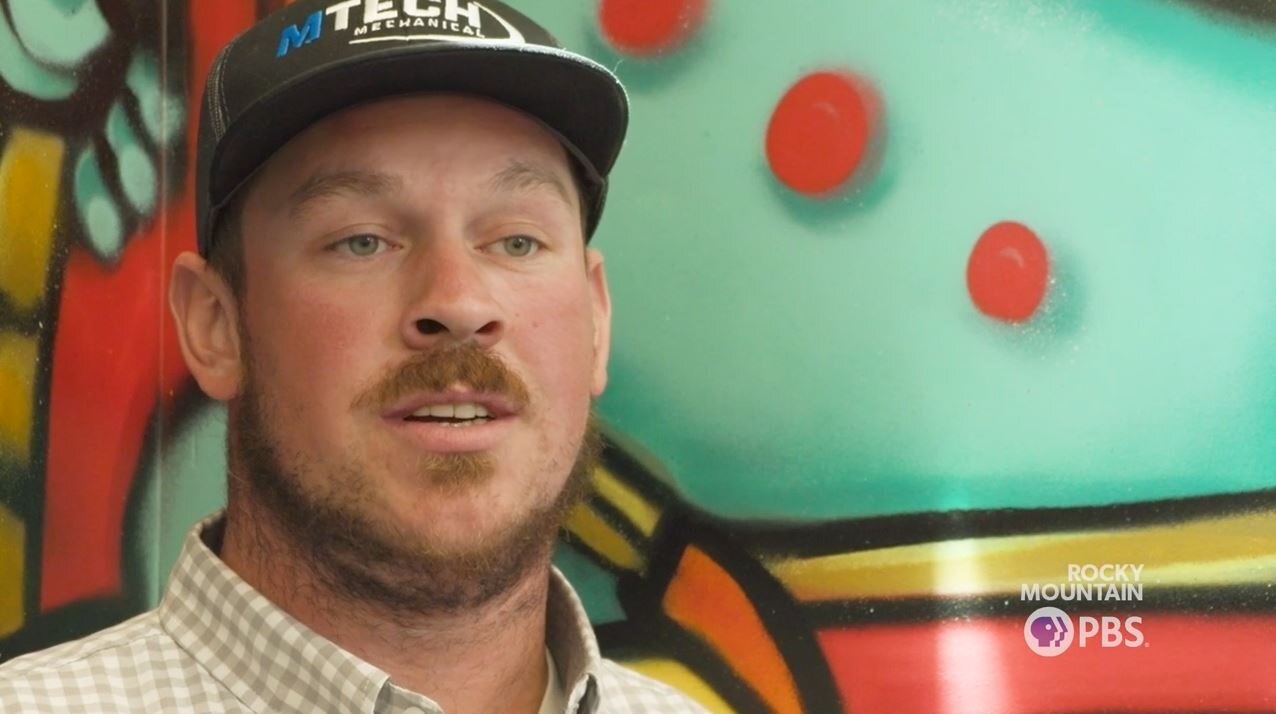How a nonprofit re-entry program helps formerly incarcerated Coloradans back on their feet

DENVER — Tyler Heguy’s life didn’t start out the way he’d hoped. After running with the wrong crowd when he was younger, he developed a heroin addiction and spent time in prison. Now, Heguy is living what he considers a stable and fulfilling life.
“I’ve only been out [of prison] for a year now and when I got out, I started going to school and I got an apartment. I’m in a healthy relationship and I’ve been doing things I’ve missed out on for seven years,” Heguy explained.
Ryan Owens has a similar story. He spent time in and out of prison; his second time, he was there for four years. “I used to be a car thief, a drug addict, a drug dealer. I used to do all the wrong things for all the wrong reasons. So, I didn’t start out that way. No one starts out that way,” Owens said.
But both men will tell you that the main reason they’re doing well after being released from prison is because of a program at Servicios de La Raza, a nonprofit advocacy group that offers low-cost, culturally responsive services to the Denver community. Many of their clients are Spanish speaking.
Owens and Heguy credit the organization’s WAGEES (work and gain employment and education skills) program for their success outside of prison.
Itzel Gonzalez oversees the WAGEES program at Servicios de La Raza.
“What we do is we provide all sorts of supportive services for individuals just released from incarceration, both men and women, from the ages of eighteen to … well, we’ve had people who are in their seventies," Gonzalez said. Once the men and women come to Servicios de La Raza, Gonzalez said, they are assigned to a case manager who works with them for 90 days. In that time, the nonprofit helps people find employment and other financial help.
Owens says when he was released from prison, he was given a hundred dollars and good luck wishes. “That doesn’t get you much in this world. Maybe a hotel room for a night or some food," Owens said. "At Servicios de La Raza they helped me with food and clothing. They helped me find a job. I’m a pipe fitter apprentice now."

Heguy feels that Servicios de La Raza’s WAGEES program gave him a sense of direction. And the resources the organization offers are invaluable.
“Getting a job was very important to me because it gave me responsibility. Being sober is the most important thing to me because it keeps you away from all of the bad decision you’ve made your whole life," Heguy explained. "Getting my own place was important to me because I need a place where I can be alone with my thoughts after being so overwhelmed by the outside world after not being it so long."
According to statistics from the Prison Policy Initiative, a nonprofit that tracks patterns in incarcerated populations, 47% of people released from prison are arrested again within a year of getting out. Out of the 303 clients that the WAGEES program has helped since July of 2020, only 4% have returned to prison.
Gonzalez said everyone needs help and deserves a second chance.
“We live in a time that is very difficult. From employment to, well, the cost of living in Denver is absolutely mind blowing," Gonzalez said. "So, for these people who are released and often times it’s like 'Good luck, here’s a bus ticket, go figure it out.’ What do we expect from them?”
[Related: Parolee describes returning to society during a pandemic after 26 years in prison]
Heguy wants to earn a scholarship to the Colorado School of Mines to study astrophysics and geology. Owens said without Servicios de La Raza he doesn’t know where he’d be. “I’d possibly be homeless," he said. "I’d possibly be back doing the same things that got me into prison in the first place.”
Dana Knowles is a multimedia journalist at Rocky Mountain PBS and can be reached at danaknowles@rmpbs.org.
Julio Sandoval is a multimedia journalist with Rocky Mountain PBS. You can reach him at juliosandoval@rmpbs.org.